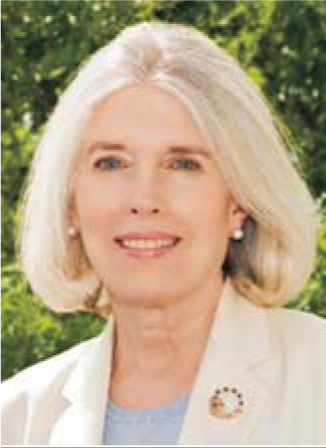Kirby to become executive officer of APS
DOI: 10.1063/1.3177222
On 13 July, Kate Kirby, a physicist at the Smithsonian Astrophysical Observatory (SAO) and a senior research fellow and lecturer in Harvard University’s astronomy department, will succeed Judy Franz as executive officer of the American Physical Society. Franz is retiring after 15 years in the post.
“APS is an exciting and dynamic organization that both involves and serves the community very effectively,” says Kirby. “It does a lot of wonderful things for physics and the physics community.”
“I’ve been involved with the society for more than 25 years,” she adds, “and the more I heard about [the job], the more excited I became about being part of [APS].”
Kirby is a fellow of the society; among her APS roles, she has served on the executive committee (2005–06) and as chair of the division of atomic, molecular, and optical physics (1995-98). She earned her PhD in theoretical atomic and molecular physics from the University of Chicago in 1972, and then joined Harvard as a postdoc. Shortly afterwards she was appointed to the SAO. During her tenure she served as associate director for 13 years, heading up the division of atomic and molecular physics, and led the NSF-funded institute for theoretical atomic, molecular, and optical physics.
“Dr. Kirby will bring visionary leadership and commitment to APS,” says society president Cherry Murray. “She is a distinguished physicist who deeply understands the missions and operations of APS. With the scientific taste, eloquence, and diplomatic skill she has demonstrated in her career, she will be an exceptional advocate for all of physics.”
Franz concurs: “Kate brings the same love of physics and strong commitment to the broad physics community that I have, and I am sure that she will use these to continue to strengthen APS and physics itself.” Franz will overlap with Kirby for several weeks to smooth the transition. In recent weeks Kirby has been working closely with APS staff on the 2010 budget and preparations for the society’s long-range planning meeting. During her first few weeks on the job, she plans to brainstorm with staff to see what can be done more effectively and efficiently.
Kirby’s vision for the organization is to make sure it remains vibrant and responsive to the community in these “tough economic times,” particularly in light of Franz’s efforts to expand the society’s membership. “Judy will be a tough act to follow,” says Kirby. Ensuring that women and minorities are well-represented at APS meetings, on committees, as invited speakers, and as prize and fellowship recipients will be among her goals. She adds, “Mentoring might be an area that APS expands into, depending on the society’s budget and the community’s interest.”
Policy will also be a high priority. “There is a tremendous opportunity to work with the physics community and the APS Washington office in terms of articulating the case for government investment in physics and the physical sciences,” says Kirby. “There is absolutely no question that physics, basic research, and outstanding science education are key toward securing [the US’s] economic future. Physics research will play a leading role in solving top problems such as energy, nuclear security, climate change, and high medical costs. We have got to make sure we are getting the country on the right trajectory, particularly two years from now when the stimulus funds [a $6 billion dollar injection into science by the Obama administration] are not around.”

Kirby
KEN COLE/APS

More about the authors
Paul Guinnessy, pguinnes@aip.org





